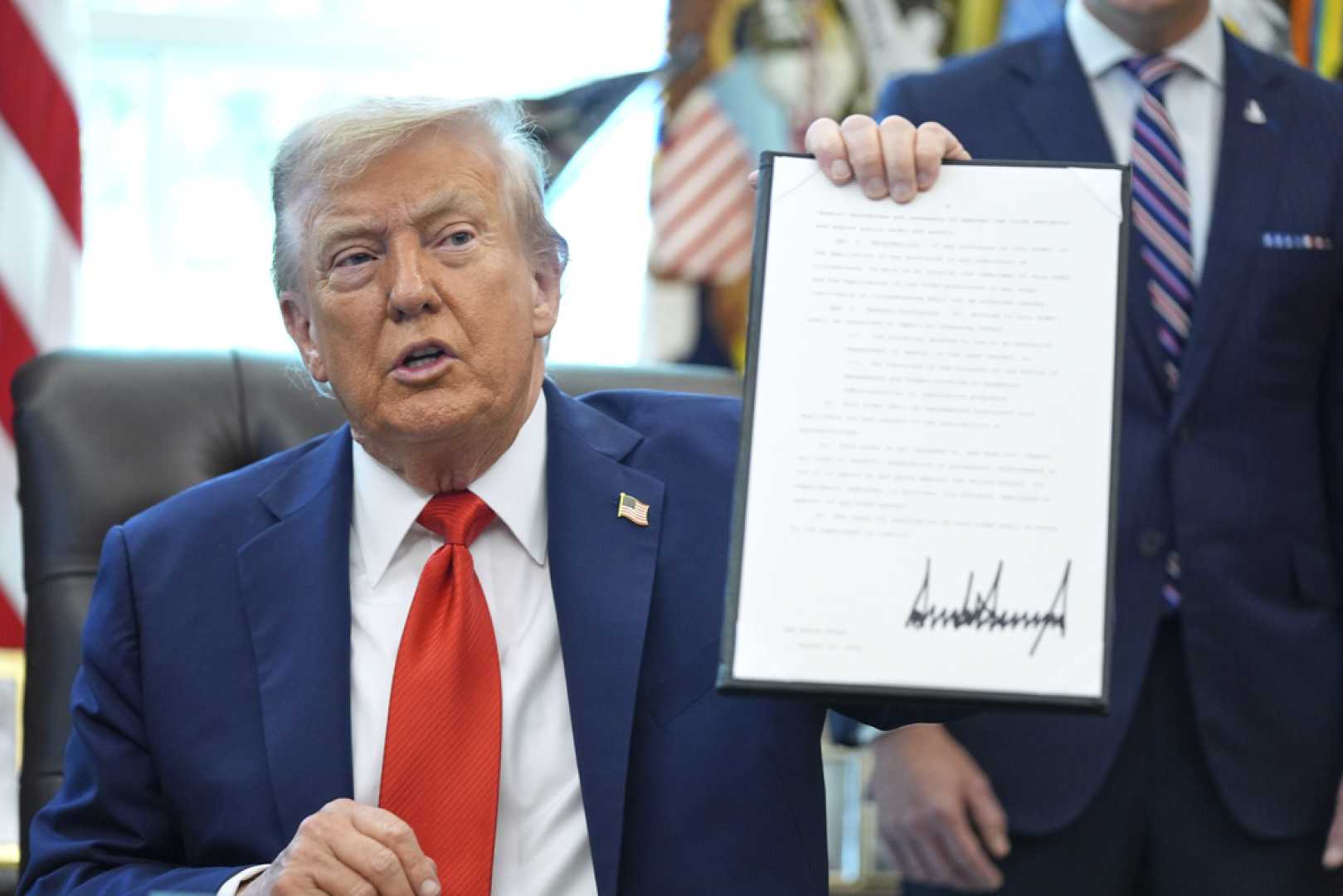Politics
Trump Orders Crackdown on American Flag Burning Amid Controversy

Washington, D.C. — President Donald Trump signed an executive order on Monday aimed at prosecuting individuals who desecrate the American flag, including through burning. The directive comes amidst a heated national debate on free speech and the symbolism of the flag.
Trump described the American flag as the most sacred symbol of the United States, stating that acts of desecration are “uniquely offensive and provocative.” He asserted that flag burning can incite riots and violence, labeling it a statement of contempt for the nation. In his remarks, Trump emphasized the need for the Justice Department to prioritize cases involving flag desecration.
The executive order instructs the Attorney General to enforce existing criminal and civil laws against flag desecration that cause harm unrelated to expression. This includes prosecuting violent crimes, hate crimes, and discrimination against U.S. citizens.
Legal experts are divided on the constitutionality of Trump’s order. David Cole, a law professor at Georgetown University, pointed to Supreme Court rulings, including Texas v. Johnson, which found that flag burning is protected under the First Amendment as a form of free speech. Cole highlighted that the government cannot dictate how citizens express their feelings about the flag.
Jonathan White, a professor of American Studies, added historical context, noting that flag desecration has been a subject of legal and social controversy since the Civil War. He explained that various laws against flag desecration were enacted but faced legal challenges, emphasizing that the Supreme Court has historically protected such actions.
Trump’s order also seeks to limit immigration benefits for foreign nationals who engage in flag desecration, directing federal agencies to revoke visas and seek removal of individuals based on these activities. This aspect of the order raises further legal questions regarding constitutional protections extended to non-citizens.
Legal defenders of free speech argue that Trump’s measures could set a dangerous precedent. Bob Corn-Revere, chief counsel at the Foundation for Individual Rights and Expression, asserted that while individuals can be prosecuted for lighting fires in unauthorized areas, they cannot be punished for acts of political protest that are constitutionally protected.
As the nation reflects on the meaning of the American flag, the implications of Trump’s executive order continue to unfold in the legal landscape, possibly reigniting a long-standing debate over the limits of free speech and the sanctity of national symbols.












